The use of basic dyes is most commonly seen in the colouring of fabrics, particularly the fabrics that are made with the help of acrylic fibres. The dyes are applied with the help of dye baths and there are numerous reasons why the basic type of dyes are most preferred in the dying of textiles and fabrics and in some instances in the colouring of paper and paper products. The type of dyes are insoluble in water generally but when they are treated with alcohol or other spirits, they become soluble in water after which they are used for the various dying processes. Continue reading Top Features of Basic Dyes
Category Archives: Uncategorized
Direct Black Dyes Manufacturers Influencing Modern Interiors
When you think about a niche industry like the dye manufacturing industry or businesses like direct black dyes manufacturers, one of the most natural thoughts to come to mind is that it is highly unlikely for them to influence a mainstream industry like interior design and décor. However, it is interesting to note that the two industries have a strong bond especially in the modern, minimalistic times, when the colour black is taking a dominant position in the interiors of homes, offices and commercial spaces. Continue reading Direct Black Dyes Manufacturers Influencing Modern Interiors
When CanPigment Red Manufacturers Help?
Pigments come in different forms and one of the most common forms in which pigments are sold by manufacturers is the powdered form. Powdered pigments need to be mixed with water to be able to create an applicable pigment and are used in a lot of different industrial applications. One among the pigment varieties that is in high demand across a great number of industries is pigment red in alternatives like 170 and 112. There are a lot of industrial players that need the pigment red alternatives mainly as finishing material for processed goods. Here is a list of industries in which the variety of pigments serves most: Continue reading When CanPigment Red Manufacturers Help?
All The Applications of Pigment Blue
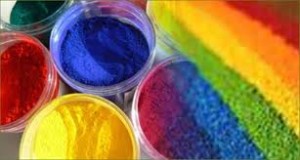
Pigments are the colour imparting molecules that are added to a solution to create a paint or an ink that is eventually applied on a substrate such as a fabric, paper, plastic, wood or any other surface. While the range of colours and types of pigments used across industries is extremely wide, the demand for pigment blue manufacturers is particularly high in all businesses and commercial activities. There are several reasons why the pigment blue alternative is in great demand among businesses. Continue reading All The Applications of Pigment Blue
How Dyes Work and Where They are Used Most
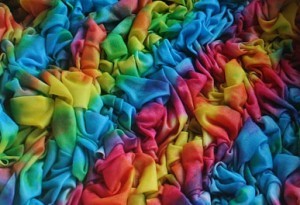
A dye is a material that is used in the colouring of a surface with a use of a solvent that enables the dyeing process. A number of surfaces can be coloured or dyed with the use of different types of dyes like natural, synthetic, direct dyes and more. There are a lot of advantages that the element offers, which is why it is preferred in the form of a colorant for surfaces like fabrics, paper, leather and other such absorbing materials. Dyes offer a great level of fastness and do not buckle under pressure when exposed to factors like water, heat, light or wear and tear. It is interesting to note that different kinds of dyes use different application methods for the dyes to work well. Continue reading How Dyes Work and Where They are Used Most
What Goes in the Making of Different Kinds of Inks
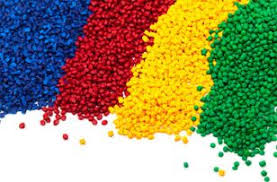
One of the most important, integral and inseparable factor in the making of inks is the kinds of pigments that are used in the ink. Right from the appearance of the ink to the characteristics to the way in which the ink lasts, everything is determined by the pigments that are used to colour the inks. It is therefore important to understand the kinds of pigments for inks that are used when you want to understand about the kind of ink that is suitable for your requirement. With the wide range of inks that are available in the market, it can get confusing to learn which inks are best for the use that you have in mind. With a guide on the pigments and inks it can become easier for people to pick out the right choice, when printing needs to be carried out. Continue reading What Goes in the Making of Different Kinds of Inks
Application of Acid Dyes in the World of Fabrics
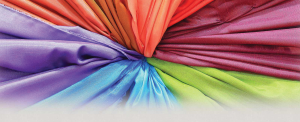
There are a lot of dyes that are used in the different dying functions, particularly in the dying of fabric and textiles. However, it is interesting to know that acid dye and its applications are most common in the world of fabrics. Fabric treatment plants and manufacturers, make a wide use of the acid dyes. Even before learning about the way in which the type of dyes is used on fabrics, it makes sense to learn about the dye itself. The acid dyes get their name because of the conditions in which they are applied, basic dyes were acidified which is how the acid dyes came into being and are best judged for quality by the output they give when they are applied to protein fibres. There are certain kinds of fabrics for which the acid dyes are better suited than the others. Continue reading Application of Acid Dyes in the World of Fabrics
Industries That Employ Basic Dyes and Why

When you set out to learn about dyes, you will realise that there is a huge range of dyes that people can choose from, depending on the application that they want to use it for. Among the different dyes that are manufactured, basic dyes have a large market share and have varied industrial applications. The definition of a dye is a chemical solution that works by bonding with the surface on which it is applied. A basic dye is positively charged and works well with negatively charged surfaces such as fabrics, particularly acrylic fibres and even on paper. The dying process is completed with the help of supporting solutions like acetic acid so that the surfaces are enabled to allow the dye to settle on them. One of the most salient features of products from the best basic dyes manufacturers in India is that the dyes produce extremely bright and vibrant shades, which is why they are appropriate for certain industries more than the others. Continue reading Industries That Employ Basic Dyes and Why
How Naphthol Dyes are Applied and What Needs to be Checked
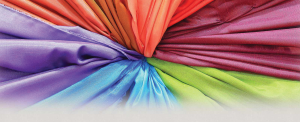
There are a number of options available in the process of dying fabrics and different kinds of dyes are used in the various processes. However one of the most effective and widely used dying processes is the one that is done using naphthols. The process of dyeing using naphthol is done in combination with insoluble azo dyestuffs. There is a complete cycle of steps that need to be followed in the dying process to be able to get the right results. The use of the naphthol dyes is most common for cotton fabrics apart from other cellulosic fibres such as jute, hemp, linen and even silk and rayon. The method and practice of dying using naphthols is most widely seen in African and wax prints. Understanding the process of dying using the combination of naphthols and azo dyes can help in establishing where the application is most suited. Continue reading How Naphthol Dyes are Applied and What Needs to be Checked
Achieving Sustainability with Dyes and Pigments

We live in times when the Planet Earth is crying out for help and clamouring for attention from us. We the people that are responsible for all the pollution that is spread across the globe need to sit back and take stock of our actions to make sure that we lead our steps towards sustainability in every little thing that we do. One of the most effective ways to spread the word about eco-friendly activities is by basing business models on the foundations of sustainability. Small things like the use of sustainable methods in dyeing and printing in various industries can have a far reaching impact on the environment and an eventual positive message for the others to follow suit. In order to be able to use eco-friendly printing methods, it is first important to find out about sustainable dyes and pigments so that the very foundation of the initiative is right. Continue reading Achieving Sustainability with Dyes and Pigments